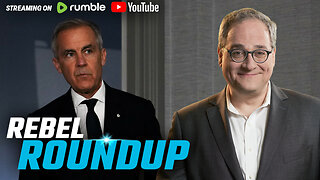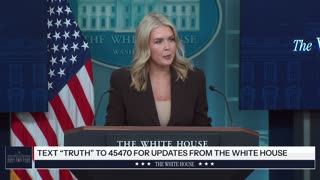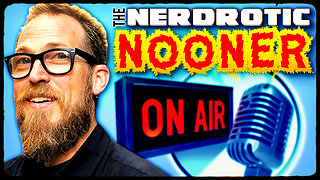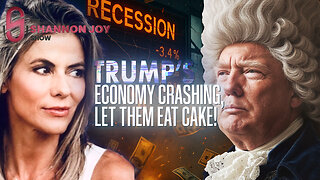Premium Only Content

Episode 3233: If the Successors of St. Pius X Had Been Vigilant
www.catholic-reboot.com
Nightly Zoom Coordinates for Rosary:
Meeting ID: 865 8978 0399
Passcode: Wjjv4960!
Speak Lord for your Servant is Listening
Book Recommendation of the Day
Pascendi Dominici Gregis
If the Successors of St. Pius X Had Been Vigilant
The question before us is both challenging and sobering: If the successors of St. Pius X had remained vigilant against Modernism, would the Church be in the modern crisis we see today? St. Pius X, with prophetic clarity, called Modernism “the synthesis of all heresies,” recognizing it as a cancer that would corrupt every facet of Catholic life doctrine, liturgy, Scripture, and authority.
His pontificate was marked by decisive actions, such as the imposition of the Oath Against Modernism and the strengthening of Thomistic formation, to protect the flock from this insidious threat.
Yet, following his death, subsequent pontiffs allowed a gradual erosion of these defenses. What followed was the slow but devastating infiltration of Modernist principles into seminaries, catechesis, and eventually into the Second Vatican Council itself.
To understand how this neglect reshaped the Church, we must look back to the great warnings of Trent, Vatican I, and finally to the masterful condemnation of Modernism in Pascendi Dominici Gregis.
Segment 1: The Council of Trent’s Warning
The Council of Trent provided one of the most important doctrinal bulwarks against innovation in the Church. It made explicit that the sacraments were instituted by Christ Himself, and thus, no man had the authority to alter their essence. Trent declared with authority: “If anyone says that the sacraments of the New Law were not all instituted by Jesus Christ our Lord…let him be anathema.”
It also firmly condemned any attempt by clergy to tamper with the liturgy for personal preference, stating: “If anyone says that it is permissible for ministers of the Church to change, add to, or omit anything in the liturgy at their own pleasure, let him be anathema.”
These canons were not theoretical they were safeguards against precisely the kind of reckless liturgical experimentation that later exploded in the 20th century. St. Pius X understood that fidelity to Trent meant not only upholding the form of the sacraments but also resisting every impulse to innovate.
His successors, however, began to treat these clear anathemas as outdated formalities, thereby allowing the spirit of experimentation to grow unchecked.
Segment 2: Vatican I’s Guardrails Against Doctrinal Innovation
Nearly three centuries later, the First Vatican Council reiterated and fortified these same principles. In its constitution Dei Filius, Vatican I taught that divine revelation is not a product of philosophical creativity or human progress but a sacred deposit entrusted to the Church. “The doctrine of faith which God has revealed has not been proposed as a philosophical invention to be perfected by human ingenuity, but as a divine deposit committed to the Spouse of Christ, to be faithfully guarded and infallibly declared.”
The Council went further by binding the Church to preserve the unchanging meaning of dogma: “That meaning of the sacred dogmas is perpetually to be retained which Holy Mother Church has once declared, nor may that meaning ever be departed from under the pretext of a deeper comprehension.”
Yet, in the decades following Pius X, his successors allowed exactly this “pretext of deeper comprehension” to take hold, giving rise to the idea that dogma could evolve in its substance to fit the needs of modern man. What Vatican I had firmly closed the door on, later popes quietly left ajar, enabling the so-called “development of doctrine” to be twisted into a license for doctrinal mutation.
Segment 3: Pius X’s Pascendi – The Great Condemnation of Modernism
St. Pius X’s 1907 encyclical Pascendi Dominici Gregis is often called the Magna Carta against Modernism, and for good reason. With unmatched clarity, he identified the Modernist strategy: undermine doctrine by relativizing truth, weaken faith by sowing ambiguity, and disarm the Church by disguising error in the language of renewal.
“Modernists pervert the eternal concept of truth and substitute a relative one. They make of dogma something not absolute but subject to change according to the needs of the age.” He further warned: “The most pernicious of all the adversaries of the Church are those who, feigning love for her, take advantage of their knowledge and learning to bring about her ruin.” These words were not abstract they foretold exactly how false theologians would later dismantle Catholic doctrine from within.
Pius X’s Oath Against Modernism was a concrete response, ensuring that every priest, seminarian, and teacher swore fidelity to the immutable faith. Sadly, this safeguard was abandoned after his death, and the very errors he condemned gained traction, preparing the way for Vatican II’s embrace of ambiguous formulas and novel practices.
Segment 4: What If They Had Been Vigilant?
Had Benedict XV, Pius XI, and Pius XII fully enforced Pius X’s measures, the trajectory of the Church would have been very different. The Oath Against Modernism would have rooted out innovators before they ever took positions of influence in seminaries or chancery offices. A firm insistence on Thomistic theology would have preserved clarity of thought in priestly formation, preventing the confusion that later emerged from theologians such as Karl Rahner and Henri de Lubac.
Liturgical tampering would have been swiftly condemned, sparing the Church from the disorientation that followed the Novus Ordo. Most importantly, Vatican II would not have been shaped by theologians already infected with Modernist tendencies. Instead, it could have been a true council of reaffirmation, a Council of Trent for the modern age, consolidating the faith rather than deconstructing it. The failure to remain vigilant was not merely an oversight but a dereliction that allowed the wolves Pius X had identified to infiltrate the very heart of the Church.
Segment 5: The Fruits of Neglect
The results of this laxity are now painfully evident. The Second Vatican Council introduced a new language of ambiguity that blurred Catholic identity. Dignitatis Humanae promoted religious liberty in a way that lent itself to relativism, undermining the uniqueness of Catholic truth. Unitatis Redintegratio encouraged ecumenical gestures that treated Protestants as “separated brethren” rather than souls in need of conversion. Lumen Gentium popularized the vague phrase “People of God,” which subtly weakened the hierarchical nature of the Church. Christ Himself had warned: “By their fruits you shall know them.” The fruits of these innovations are clear—empty churches, collapsing vocations, widespread catechetical ignorance, and a laity unsure of what the Church even teaches. These are not the fruits of divine renewal but the bitter harvest of Modernism, watered by decades of negligence after the death of Pius X.
Segment 6: The Path Forward
The way forward is not to reinvent solutions but to reclaim what was already given. The Council of Trent demands we protect the sacraments and liturgy from human tampering. Vatican I insists that dogma cannot evolve into new meanings. Pascendi requires us to treat Modernism not as a debatable opinion but as the “synthesis of all heresies” that must be resisted with all vigilance. This is why the Traditional Latin Mass, the Catechism of Trent, and devotions such as the Rosary are not antiquated relics but lifelines for Catholics today. They are the antidote to confusion, the anchor of clarity, and the safeguard of fidelity. By returning to the clear teaching and liturgical patrimony defended by Pius X, the Church can once again be purified and strengthened, regaining the supernatural vitality that comes only from fidelity to Christ’s unchanging truth.
Epistle – Exodus 23:20–23
"Behold I will send My angel who shall go before thee, and keep thee in thy journey, and bring thee into the place that I have prepared... If thou wilt indeed hear his voice, and do all that I speak, I will be an enemy to thy enemies, and afflict them that afflict thee."
Reflection on the Epistle
God promises His people that an angel will go before them, guarding them on the journey to the Promised Land. The angel is a sign of God’s nearness and of His desire to guide His children to their eternal home.
This Old Testament promise is fulfilled in the New Covenant for every Christian soul. From the moment of baptism, each of us is given a Guardian Angel who silently and faithfully accompanies us through life. They are not passive watchers but active guides—if only we heed their inspirations.
In a world full of dangers to body and soul, the Guardian Angel is God’s loving provision to keep us on the narrow path. But the condition is clear: “If thou wilt indeed hear his voice.” We must cooperate with grace, silence distractions, and learn to discern the quiet urgings of our angel toward prayer, penance, and fidelity.
Gospel – Matthew 18:1–10
"Unless you be converted, and become as little children, you shall not enter into the kingdom of heaven... See that you despise not one of these little ones: for I say to you, that their angels in heaven always see the face of My Father who is in heaven."
Reflection on the Gospel
Here Our Lord teaches two inseparable truths: the necessity of childlike humility and the reality of Guardian Angels.
Humility is the gateway to Heaven. The proud heart refuses guidance, but the humble heart receives it gratefully. Just as children rely on their parents, so too must we rely on God and the angel He has placed beside us.
Christ also reveals the dignity of every soul, reminding us that even the “least” has an angel before the throne of God. This should stir reverence for our neighbor—how dare we despise one whose guardian beholds the face of God Himself?
The Gospel, then, is both comforting and challenging. Comforting, because we are never alone. Challenging, because we are called to live with a child’s trust and a saint’s humility, cooperating with the silent guidance of our heavenly companion.
Feast of the Holy Guardian Angels
The feast was extended to the universal Church by Pope Paul V in 1608, though devotion to Guardian Angels is far older. St. Bernard beautifully taught: “Make the holy angels your friends; honor them by your prayers and by your conduct. Never do before them what you would not dare to do before me.”
The angels remind us that the Catholic Faith is not abstract but deeply personal. God has given each soul a guide on the path to salvation. In an age of skepticism, where even many Catholics dismiss the supernatural, this feast restores our awareness of the unseen battle and the merciful care of our Father.
Application for Today
• Invoke your Guardian Angel daily. Begin and end your day with a prayer to your angel.
• Practice humility. Be like a child, relying on God’s providence and trusting your angel’s guidance.
• Respect the dignity of others. Remember that every person is accompanied by an angel who beholds God’s face.
• Fight with their help. In temptation, call upon your angel for strength and protection.
Conclusionary Prayer
O God, who in Thy wonderful providence hast appointed Thy holy angels to be our guardians, mercifully hear our prayers and grant that we may ever be defended by their protection, and rejoice eternally in their fellowship.
Holy Guardian Angels, watch over us.
St. Michael, defend us in battle.
Sacred Heart of Jesus, have mercy on us.
Immaculate Heart of Mary, pray for us.
-
 LIVE
LIVE
Dear America
1 hour agoEp 4 Graham Allen Show
1,307 watching -
 LIVE
LIVE
Rebel News
1 hour agoCarney meeting Trump, Ostrich fight continues, Liberals budget promises | Rebel Roundup
344 watching -
 LIVE
LIVE
Dr Disrespect
2 hours ago🔴LIVE - DR DISRESPECT - BLACK OPS 7 - GIVE ME BACK MY NUKE
1,557 watching -

The White House
1 hour agoPress Secretary Karoline Leavitt Briefs Members of the Media, Oct. 6, 2025
5.25K3 -
 1:01:20
1:01:20
Timcast
2 hours agoTexas National Guard DEPLOYED To ILLINOIS, Governor Declares INVASION
92.8K56 -
 LIVE
LIVE
The Charlie Kirk Show
1 hour agoThe Killer AG + Kav Assassin's 8 Years + The Battle of Portland | Hemingway, Davis | 10.6.2025
7,657 watching -
 2:06:01
2:06:01
Steven Crowder
4 hours agoDeport Them All: Trump Takes Fight to Leftist Chicago & Portland Over Attacks on ICE
278K276 -
 1:01:46
1:01:46
The Rubin Report
3 hours agoBill Maher’s Crowd Stunned as Van Jones Gives a Brutal Message to Liberal Media
39.3K55 -
 LIVE
LIVE
Nerdrotic
3 hours ago $1.39 earnedHollywood Will EAT Itself | Amazon BENDS The Knee to 007 Fans - Nerdrotic Nooner 524
453 watching -
 LIVE
LIVE
The Shannon Joy Show
3 hours agoMoody’s: Recession Incoming! Economic Slowdown Crushing Americans while Trump builds a ballroom
236 watching
